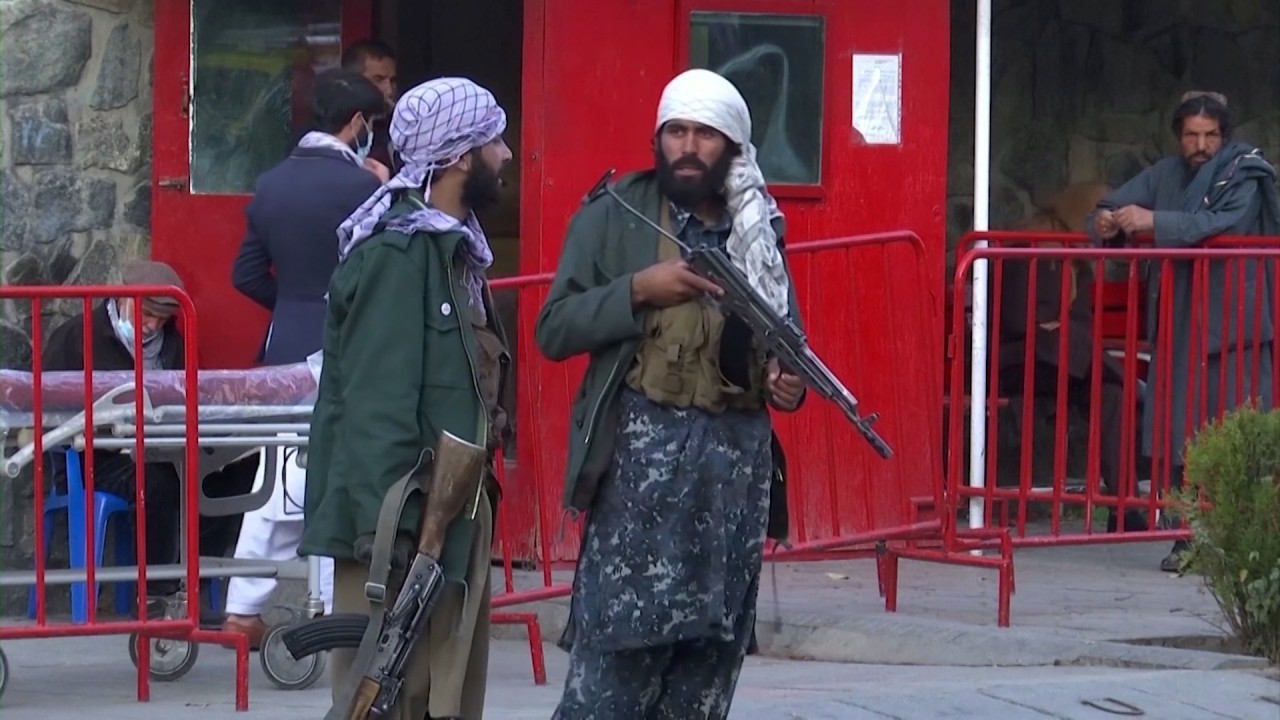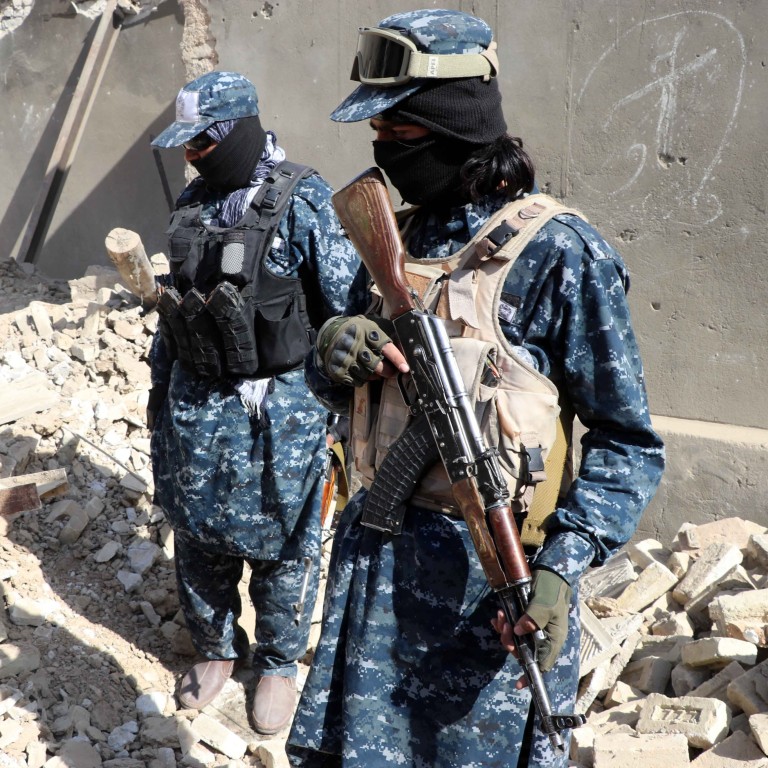
Isis-K escalates terror attacks in Afghanistan and Pakistan in show of resistance against Taliban
- Regional chapter of Islamic State becoming stronger; ‘may try to capture territory from Taliban if its numbers keep growing’, says analyst
- But experts also say Isis-K unlikely to directly threaten China although it could target Chinese assets in Pakistan to fuel tension between the allies
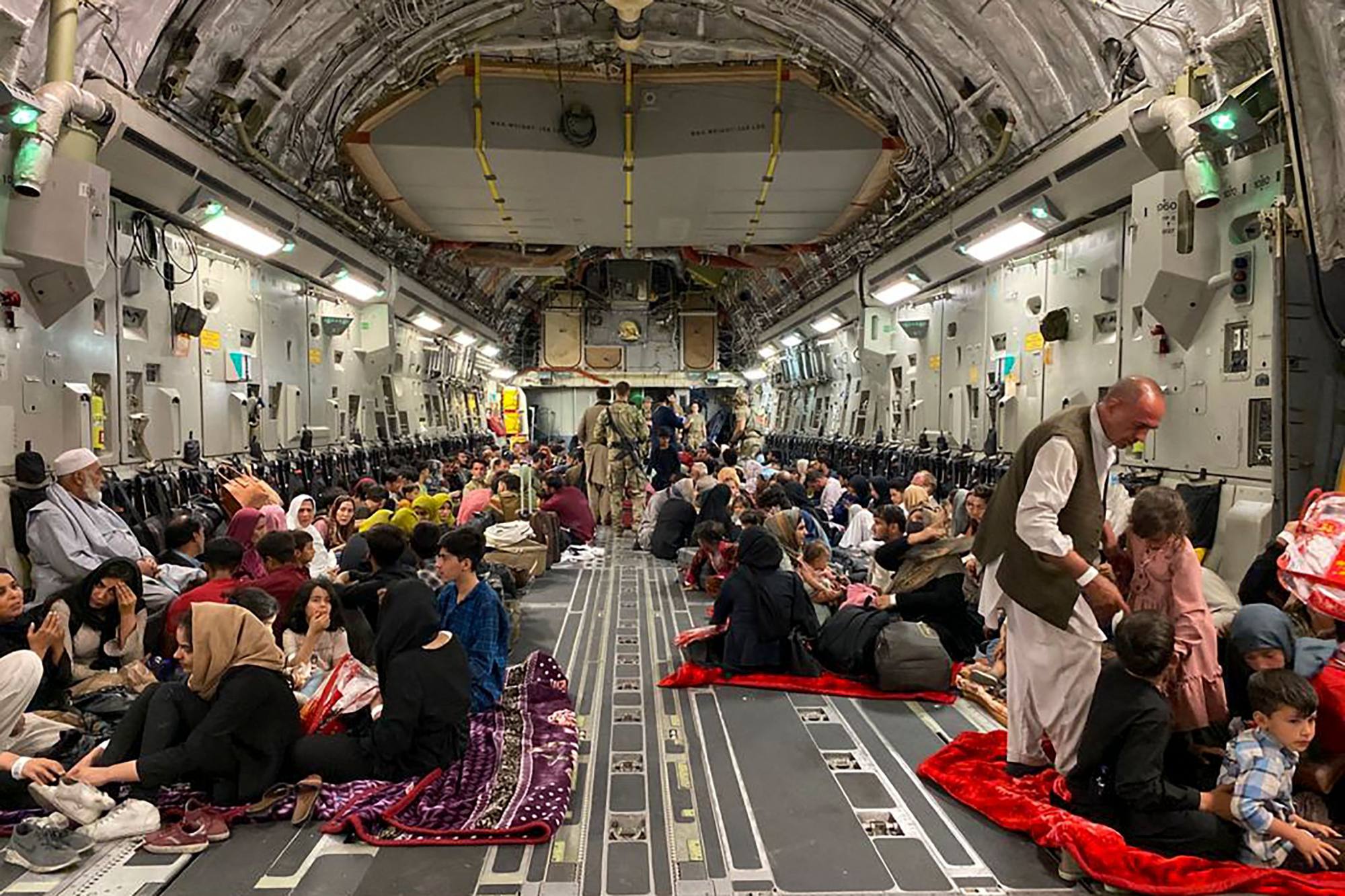
Between September 18 and November 30, Isis-K carried out 76 attacks on Taliban forces – 85 per cent of the total in Afghanistan – compared to eight in the whole of 2020, according to data compiled by Abdul Sayed, a Sweden-based security specialist on radical militant groups in Afghanistan and Pakistan.
Last year, Isis-K launched 84 attacks in Afghanistan, compared to 304 in the first 11 months of 2021, he noted in a recent post on Twitter.
Biden vows revenge after dozens killed by Isis bomber at Kabul airport
Evidence of closer coordination between Isis-K and the Middle East-based central leadership prompted the US to designate a top Isis-K fundraiser, Ismatullah Khalozai, as a global terrorist on November 22.
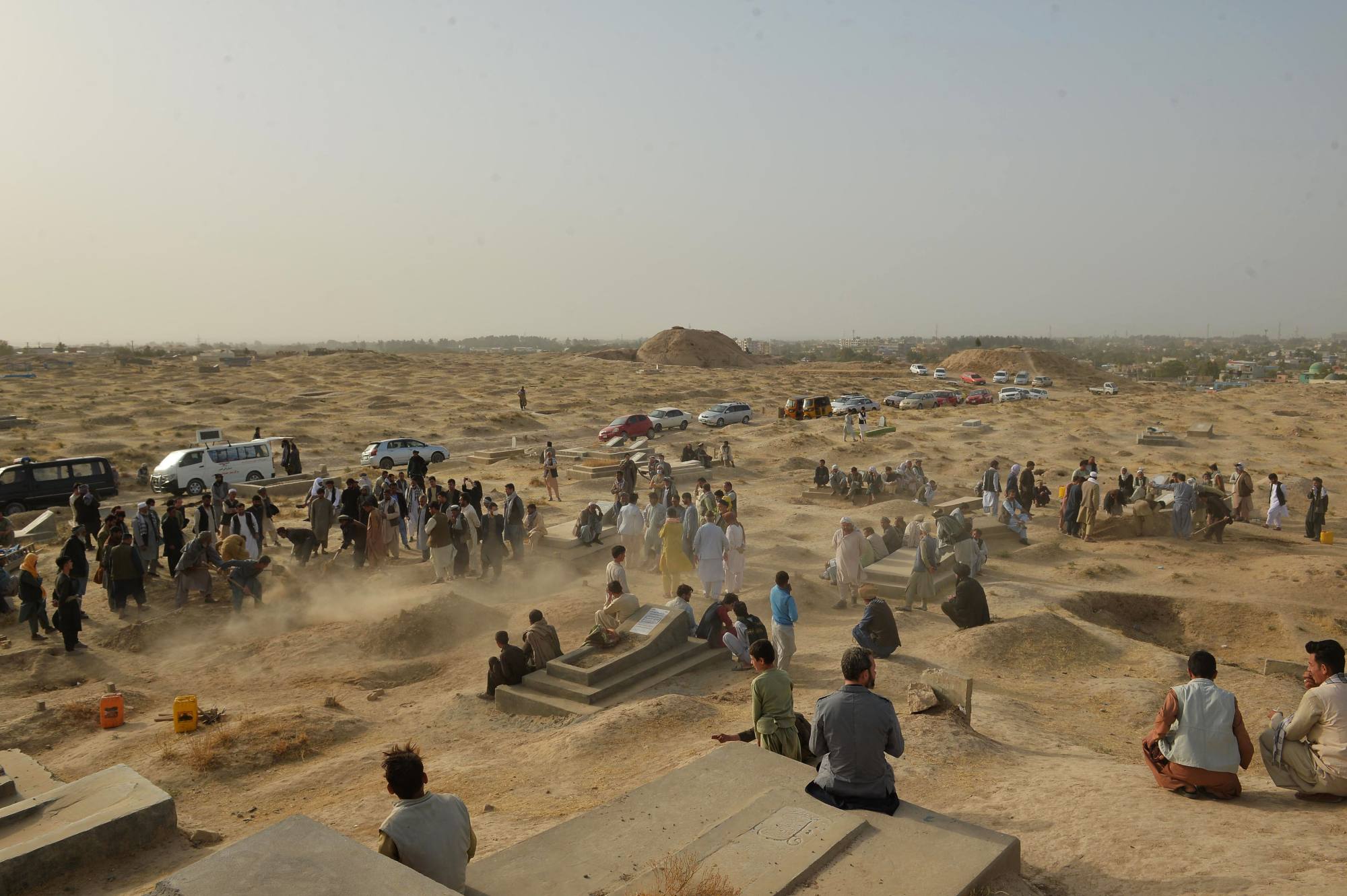
“This individual has provided support to Isis-k’s operations in Afghanistan by facilitating international financial transactions that fund human trafficking networks and facilitating the movement of foreign fighters who seek to escalate tensions in Afghanistan and the region,” the US Treasury Department said in a press statement.
Isis-K has also ramped up attacks in adjacent areas of Pakistan since October, undermining a month-long ceasefire between Pakistan’s government and Tehreek-i-Taliban Pakistan (TTP) insurgents amid efforts by the Taliban regime’s interior minister Sirajuddin Haqqani to broker a peace agreement.
They included the assassinations of a ranking commander of his Haqqani Network faction based in Pakistan’s South Waziristan tribal district and a cleric-politician belonging to a pro-Taliban party in Bajaur tribal district, where Pakistani security forces discovered a large cache of weapons in early November which they said belonged to Isis-K.
The jihadist group has also launched an online propaganda campaign painting the Taliban regime as traitors to the global jihadist cause for striking a peace deal with the US and promising to prevent Afghanistan from being used a launch pad for overseas terrorist attacks.
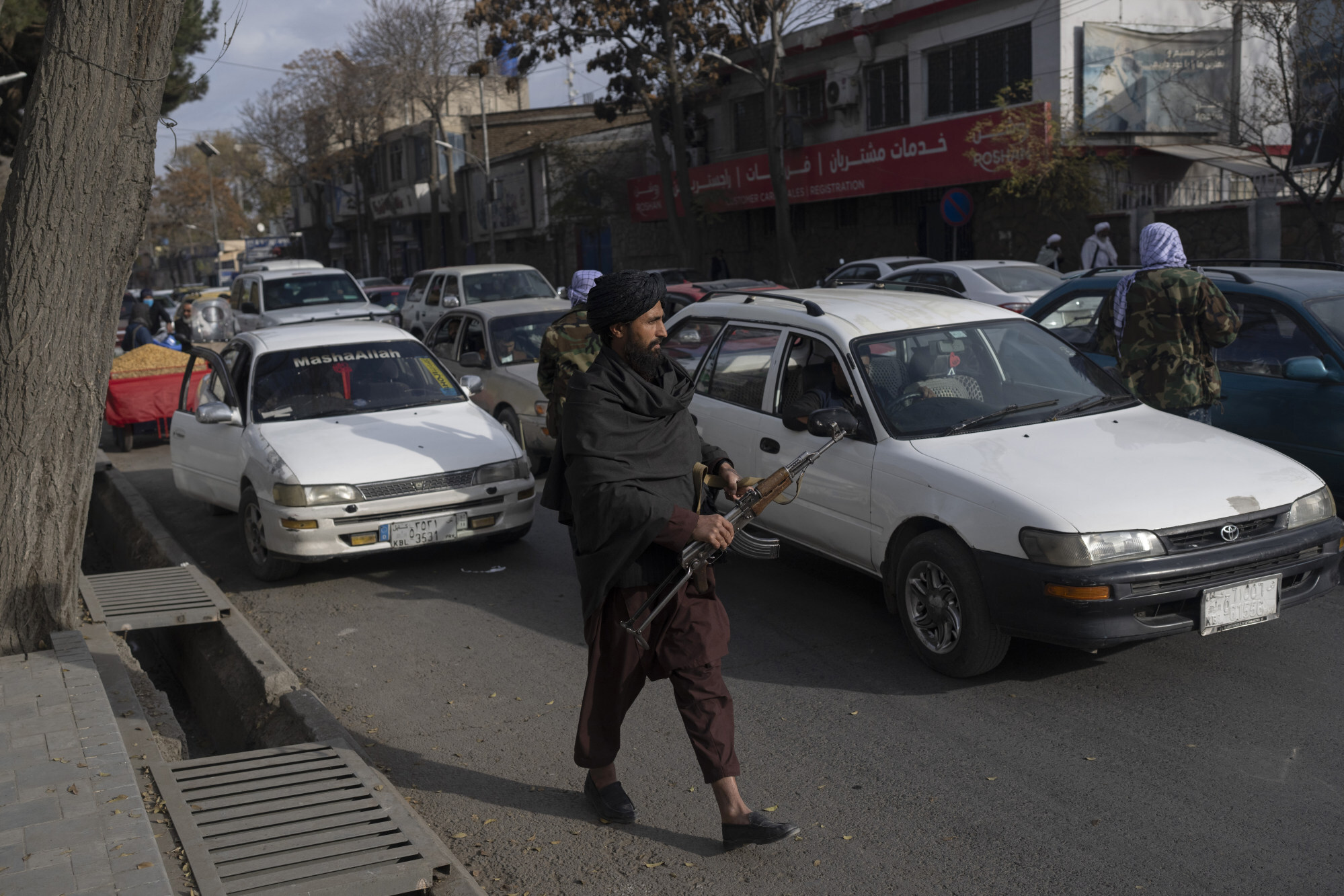
Isis-K used an Uygur suicide bomber to attack a congregation in the northern city of Kunduz in early October to mock the Taliban’s courting of China.
Isis-K has also intensified its Urdu-language propaganda campaign, targeting Pakistan’s government and Islamic scholars in a digital magazine launched in April, the latest issue of which was published on December 5.
Abu Musab, the head of al-Mahdi Media, was commemorated across Isis media networks after being slain by the Taliban on November 30, Copenhagen-based security specialist Tore Hamming reported on Twitter.
Kabul blasts: what is Isis-K and why is it an enemy of the Taliban?
He noted that al-Mahdi Media had on several occasions published posters of suicide bombers before an imminent attack. Earlier this year, it also issued photos from Isis’ central al-Furqan media operations.
Isis-K propagandists have also painted the TTP leadership as turncoats for agreeing to Haqqani-hosted negotiations with the Pakistan government.
The recent attacks in areas of South Waziristan and Bajaur considered strongholds of the TTP and other local jihadist factions are “evidence that indicates that Isis-K has established new cells in areas along Pakistan’s tribal belt”, said Faran Jeffery, deputy director of the Britain-based Islamic Theology of Counterterrorism organisation.
“This indicates that some former TTP militants could have possibly defected to Isis-K,” he said.
“Internal chatter also indicates that not everyone in the TTP is happy about their leadership’s decision to engage in peace talks with Pakistan or the role the Haqqani Network is playing in the talks.”
Isis vs Taliban: Afghanistan attacks raise spectre of wider conflict
Despite a breakdown in the flow of information about jihadist activity in Afghanistan following the departure of American forces and foreign journalists in August, security analysts have seen some signs that Isis-K has begun recruiting former members of the Afghan security forces.
Jeffery said the Taliban have repeated mistakes made by the US after its 2003 invasion of Iraq by refusing to employ former security personnel.
With Afghanistan’s economy on the verge of collapse and famine gripping much of the country, money could help Isis-K gain strength.
Malaysia’s top cop warns of suicide attacks as Isis fighters return home
To date, Isis-K has not been heavily dependent on foreign funding because the group operates as small cells that do not control any territory, having been chased out of strongholds in eastern Afghanistan by the Taliban.
Nonetheless, Isis-K militants have boasted on social media about the group’s deep pockets and support from the Middle East, in part to boost recruitment to its ranks, which the United Nations has estimated to number 2,000 fighters.
“The group’s best bet for bolstering its ranks is through recruitment of disaffected Taliban fighters, including via financial inducements, and recruitment of former government intelligence and security personnel who are looking for avenues of revenge against the Taliban and are willing to throw in with Isis-K more for practical than idealistic reasons,” said Jonathan Schroden, director of the countering threats and special operations programmes at CNA Corporation, a security think tank based in Virginia in the US.
He said the number of fighters is likely to stay relatively small, though, in part because of the small number of Salafist Sunni Muslims in Afghanistan and Pakistan.
They follow the same radical reformist school of thought as Isis-K, whereas the Taliban follows the ultra-orthodox Hanafi Sunni school.
Afghanistan: US drone strike targets Isis ‘planner’ of Kabul blast
Scores of Afghan Salafists suspected of being sympathetic to Isis-k have been arrested and summarily executed by the Taliban since it challenged the new regime.
“The bigger fear for the Taliban is that the persistence of Isis-K will paint them as weak and susceptible, which may then invite armed resistance from other disaffected parties across the country,” Schroden said.
Despite its anti-China propaganda, the two security analysts did not see Isis-K posing a direct threat to Afghanistan’s neighbours other than Pakistan for the foreseeable future.
“My sense so far is that this is just talk. To attack inside China now would be opening up a new front and instigating backlash from a new enemy, during a time when they’re already fighting on multiple fronts,” Schroden said.

He said it was more likely that Isis-K would attack Chinese targets inside Pakistan to increase tensions between the two allies.
The key to the success of Isis-K’s efforts will be “to watch for signs of a new emergent civil war”, he said.
At least 15 killed in Pakistan suicide bombing claimed by Isis
If Afghanistan starts to break down, that would provide significant space for Isis to expand. To prevent it, the Taliban regime requires international support both to prevent a humanitarian disaster and rein in Isis-K.
Jeffery said “all the elements needed” for Isis-K to gain strength are present in Afghanistan, as is evident from the multiple attacks carried out against the Taliban each week.
“I think in the not so distant future, Isis-K could even aim to capture some territory from the Taliban if its numbers keep growing like they are,” he said.


